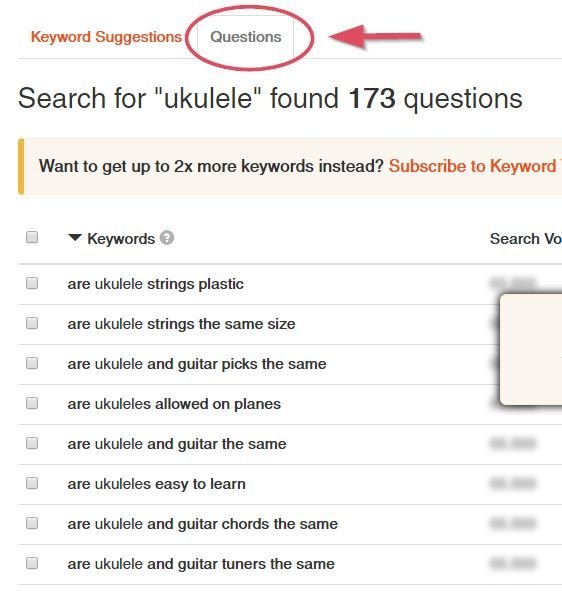I don't know about you but I have many great ideas. They are constantly pouring into my head. They appear from nowhere when I'm driving, when I'm showering, when I'm doing the laundry... and sometimes even when I'm picking up dog poop! They wake me up in the middle of the night. "Hey Mui! What do you think of this?"
Are you the same?
Why it’s important to validate your ideas first
And if you're anything like me, when you get an idea, you feel so excited that you want to make it happen immediately. But wait! Whether the idea is for an online course, a lead magnet, a coaching programme, a live event, a webinar or a brand new business venture, the last thing you want to do is to get into full implementation mode before finding out if anyone is going to be interested in what you have to offer, let alone pay for it and make you some money.
Many business owners (and I've been guilty of this) go all-in with an idea just because they think it will work, only to end up feeling totally defeated when the expected sales don't come rolling in. And believe me, feeling defeated can paralyse you and make you lose confidence in yourself, making it more difficult for you to take action in the future. That's why validating your business ideas before implementation is a smart thing to do. And you will save yourself a lot of time, money and energy.
So, how do you validate your ideas?
Table of Contents
Part 1: Searching
Part 2: Listening
Part 3: Asking
(Part 1) Searching

Searching is the first thing you can try. After all, search engines record and analyse what real people actually search for and what they click on the most.
Start by making a list of the words and phrases that people would search for relating to your idea. Then head over to these places:
(1.a) Google Search
When it comes to searching, Google is your friend. Run a search on the words and phrases in your list and see what comes up.
- Are the page-one results relevant to your idea?
- Are there relevant ads on the results page?
- Are there videos related to your idea?

Don't worry about finding competitive or similar offerings to your idea. It's a good thing because it's proof that there are people who are willing to pay for it.
Be sure to pay attention to the related search terms Google shows you at the bottom of your search results page. Those related search terms are what people often type in after their initial search. Do items related to your idea show up there?

Here's a very cool thing you can do with Google search data. Header over to https://keywordtool.io and type in your search term. After you hit enter you'll see a list of keyword suggestions. Now click the "Questions" tab next to Keywords Suggestions, and you'll see a list of questions that people are asking on Google. These questions will help you decide whether your idea has a market or not. (By the way, a question that came up for the test search I did for ukulele was "Did Elvis play ukulele?" I'm sure he didn't but I could be wrong.)

(1.b) Amazon
I buy lots of things from Amazon. But did you know that Amazon is a great tool for idea validation?
Two categories that are going to be useful to you are Books and Kindle Store. Kindle Store, in particular, contains electronic versions of many commercially published books, as well as a huge collection of niche topics that are only available as ebooks.
So, go ahead and type your search terms into the Amazon search box. Then select "Kindle Store" from the dropdown. If you see results that are closely related to your idea/topic and they're selling well, then you'll know your idea is not going to be a total flop.
The great thing about Amazon is that you can look through the reviews for each book and see what people are saying about it. What are their likes and dislikes? Is there anything the reviewer wished the book covered but didn't? This is golden information you can use to refine your idea.

(1.c) Udemy
Udemy is like Amazon for online courses and it's a great place for market research.
Head over to udemy.com and type in your search term. How many courses are available? What are people saying about them? Look through the course contents and see what topics are being covered. Again, you can gather valuable information from reading the reviews.

(Part 2) Listening

Searching is something you can do quickly in 30 minutes to an hour or so. It's a quick way to validate your idea to make sure that it's something that has a potential market.
Listening, however, is a slower process. I suggest you do this over a course of a few days to a week. Make plenty of notes as you're listening and pay attention to the language people are using. What words and phrases are people using to describe their problems? This will be very useful when you come to promote your service/product because you'll be able to speak directly to your audience using words and phrases they have used themselves. This is what makes people feel: "Oh my god! It's like you're talking to me!"
So, where do you go to listen? You go where people gather to talk about your topic.
(2.a) Reddit
Reddit is a treasure trove for idea hunters. There are subforums (called subreddits) that are dedicated to all topics under the sun. So head over to reddit.com, and type in your search terms.

Using my test search terms "beginner ukulele", you can see that there are two subreddits - "Easy ukulele" and "Ukulele help" - that may be of interest to me. Below the subreddits, you will see individual posts that are relevant to your search terms.
You can click through to the subreddits and browse through the posts, and/or check out the individual posts that are returned for your search. You want to look at posts that have quite a few comments so that you can gain useful information from them.
"Listen" to what questions people are asking. What pain points do they have? What problems need solving?
For example, there's a post for my search where someone asked "Baritone or Tenor Ukulele for a beginner?" Looking through the comments, I've just come up with a few blog post / freebie ideas in 5 minutes:
- "What's the difference between a baritone and a tenor ukulele?"
- "How much should I spend on a ukulele for a beginner?"
- "Is a baritone ukulele suitable for a beginner?"
- "Beginner's guide to owning a ukulele"
- "5 super fun songs for ukulele beginners"
- "5 fun finger exercises for ukulele beginners (that won't send your family running for cover)"
(2.b) Quora
Quora is a questions and answers site. You'll find that the answers tend to come from people who have expertise in the field. To get started, head over to Quora and type in your search.

Look through the questions and answers, and make notes of the language and phrases people are using. You may even want to post an answer yourself but be careful not to pitch your service/product blatantly.
Again, the questions and answers should give you an indication as to whether your idea has a potential market, as well as spark some new ideas for your content marketing, courses, opt-ins etc.
(2.c) Facebook Groups
You'll find questions, answers, insights and rants in many Facebook groups related to your idea. Simply type in your search terms and look for groups that are relevant to you. Join the group and browse through the posts to see what people are posting and asking. Look through the comments and make notes. Look for groups that have at least a few hundred members and plenty of engagement.

I find rants particular valuable. What are people's frustrations? What's missing in the market? What can you provide that will make a difference?
(2.d) Other places
Hopefully you now know how to listen to what people are saying about your topic. There are many more places where people gather to discuss things. Just open up Google, type in your keywords followed by:
- forum
- discussion group
- community
- chat
- resources
- list
- user group
- blog
- questions
- FAQs
- advice
- problems
- help
- reviews
So, for example, "ukulele forum", "ukelele discussion group", "ukulele community", etc.
You can get more specific by refining your keywords. For example, "children ukulele forum", "children ukelele discussion group", "children ukulele community", etc.
(Part 3) Asking

I see so many people use guesswork when it comes to creating products and services. Why risk spending months of time and energy creating something that nobody wants, when you can simply ask your existing and/or potential audience what they want from you? One of the best advice I've been given over the years is "Don't ask. Don't get." The good thing is, most of the time your audience wants to help you, especially if you ask in the right way.
(3.a) Reddit & Quora
We've already talked about these in Part 2 where you learned how to use Reddit and Quora to listen to the questions people are asking, and the answers given by other participants.
Of course, you can post questions in Reddit and Quora yourself. The key here is to take time to listen first to see what types of questions have already been asked and check out the tone of the communities. Also, be especially mindful of the etiquettes of these platforms and do your best to adhere to them.
Finally, when you do ask a question, don't make it a sales pitch. Instead, be helpful. Share your knowledge and expertise and ask others to share their experiences, whether positive or negative.
(3.b) Niche communities
In Part 2 we talked about how to find places where people gather to discuss things. You can use the same group of places for listening. Once you've found a forum/community, again, take time to listen and check out the tone of the place. Then ask your question and invite people to share their views and experience.
(3.c) Survey
Conducting a survey is a great way to gather insight about your idea. Don't be shy about asking people to take a survey. I've found that Facebook users are pretty responsive when it comes to participating in surveys. Either ask your friends on your own timeline, or, if you belong to Facebook groups, invite other members to do so. Just make sure the groups you belong to allow this. If you're not sure, ask the group owner before posting a link.
Here are two excellent free tools I've used to conduct surveys:
Personally I like to ask open-ended questions (where people can type in whatever they want in a text box) instead of multiple choice type of questions as they allow the participants to express their opinions freely. Here are a few great questions to ask:
- "What is the biggest problem / challenge you've encountered in relation to [your idea]?"
- "What solutions have you tried?"
- "If there's a dream solution for your problem, what would it be?"
(3.d) Ask your audience / followers / subscribers
Nobody knows your audience more than your audience themselves. So any idea validation process should include them. They already know you and like your content, and they are perfect candidates for you to reach out to. Either ask the question(s) directly, or point them to your survey if you're using one.
If you have a way to interact with your audience, you have a way to ask them questions. For example:
- Social media platforms such as your Facebook page and your Instagram account.
- Write a blog post about your idea and invite readers to comment.
- Send them an email using your email marketing software.
(3.e) Interviews
You can find interview candidates from your existing audience or by posting in niche communities and social media platforms. If you're using a survey, you can also add a question at the end asking respondents if they'd be willing to participate in a short follow-up interview. Ask open-ended rather than yes-no type of questions. And give the person enough time to think about their answers.
You can conduct an interview on the phone, using Skype or Zoom, via emails or in person. Whenever you can, record the interview so you can review it later and make notes.
To record an interview on Skype, you can use Pamlea (Windows) or Ecamm Call Recorder (Mac).
If you're using your phone to interview, simply search for a recording app in the Apple or Android app store. There are many to choose from.
You may find it easier to review the interview if you get the recording transcribed. Rev provides a great service for this.
Important: Make sure you always ask the interviewee's permission to record the conversation.
Analysing the responses you’ve collected
Look through the responses you've collected, including all the transcripts of any recording. Can you see any patterns emerging? Start making notes about any words / phrases that keep coming up. What needs/desires are being expressed? Are you sensing an urgency in those needs/desires, as in "If a solution exists I'd get my wallet out and pay for it now"? Often you'll find that the same few topics keep coming up again and again, which means that they're the topics that really matter to the people in your target market.
If you're not seeing any patterns or real urgency in the responses you've collected, don't lose heart. It doesn't mean you have to abandon your idea. It just means you need to dig deeper by perhaps speaking to more people or looking at your ideas from a different angle. The important thing is to not get fixated on an idea that doesn't appear to have a lot of demand. And be thankful that you have just saved yourself a huge amount of work, time and money that would have gone into creating something that nobody wanted.
Are you ready to test your ideas?
I hope you've this post on validating your business ideas helpful. Do let me know how you get on.



























This is really interesting. I never really thought of it that way. Then again, I have only gotten so far with my ideas. Thanks for sharing these great tips!
want to know more